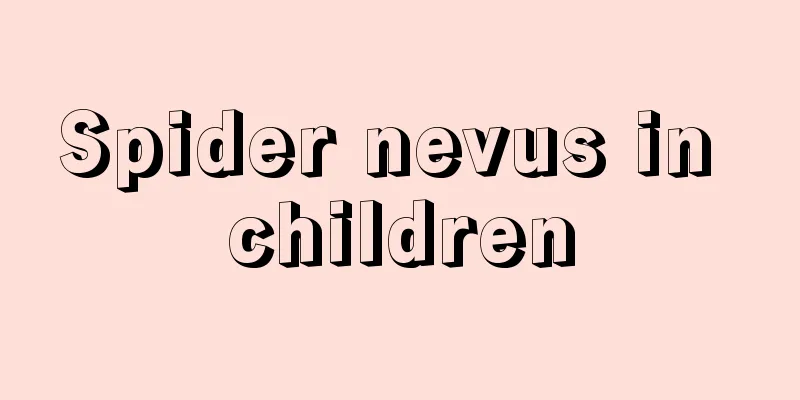Why does a 2-year-old child sweat while sleeping?

|
If a 2-year-old child sweats while sleeping, it may be because the indoor environment is too hot and the quilt is too thick. It may also be caused by symptoms such as night sweats or spontaneous sweating. Therefore, mothers should distinguish which is a normal physiological phenomenon and which is caused by disease to avoid harm to the baby. Regarding the problem of 2-year-old babies always sweating while sleeping, we can understand the causes of the disease introduced below. 1. What is the reason why a 2-year-old baby sweats a lot when sleeping? The baby's physique is in the development stage, the muscles and skin are still very weak, and it is easier for them to sweat than adults. If the baby is just sweating a small amount, growing and developing well, and is energetic, without other symptoms, it is a normal phenomenon. On the contrary, if the baby does not sweat at all, you should consider that there is a problem with sweat excretion. If you sweat excessively and have other symptoms, you should consider whether you are sick. When a baby sweats, it may manifest as sweating on the hands and feet, sweating on the chest and heart, sweating on half of the body, spontaneous sweating, night sweats, etc. Night sweats are also called sleep sweats. They are caused by sweating during sleep and stop after waking up. Generally, children's night sweats are caused by yin deficiency and heat disturbance, which makes it impossible for the heart fluid to be retained. But what we see is that not long after the child falls asleep, he or she sweats a lot on the head, chest, back, etc., often soaking the pillowcase, pajamas, etc. This is because the child's body temperature rises as soon as he falls asleep. At this time, night sweats are very obvious in children who sweat a lot. This is a physiological phenomenon. Babies who sweat more often usually experience night sweats in March, April or November. But they have one common characteristic, that is, night sweats only occur before 12 o'clock at night (that is, the first half of the night), and the sweating will stop automatically in the second half of the night. Traditional Chinese medicine believes that babies have strong yang energy and their yin energy has not yet reached its peak in the first half of the night, so they will sweat. In the second half of the night, the yin energy gradually increases and suppresses the yang energy in the baby's body from escaping. Therefore, in the second half of the night, the baby's sweat will naturally be recovered. 2. Is there any relationship between children's sweating during sleep and their diet? Today's babies no longer have to worry about malnutrition, but rather need to pay attention to overnutrition. Many babies eat high-calorie fish and shrimp almost every day. My mother loves to eat fish and shrimp because they are fresh and tender. At the same time, I think fish and shrimp are more nutritious than meat, so I always think that I should give them more to my baby. There is a folk saying that goes, "Fish causes fire, meat causes phlegm, and vegetables and tofu keep you safe." If babies eat too much fish and shrimp, they will have severe internal heat. They will show the following symptoms: 1. Children sweat easily. They often sweat a lot during the day when they are active. At night, they sweat so much that their clothes or quilts will get wet. 2. Due to the heavy internal heat and high energy, the baby is full of energy and plays all day long without getting tired and full of energy. 3. Some babies lose too much body fluid due to long-term sweating, which may manifest as redness and dryness of the lips and tongue, hot palms and soles of the feet, dry mouth, thirst, dry and granular stools. Some babies have difficulty in defecation due to dry stools at a very young age, which causes anal fissures. 4. This type of baby has a quick temper, is easily irritated, has difficulty concentrating, and has poor self-control. 5. Due to excessive sweating, loss of body fluids and reduced water content, some children have darker skin. 6. Due to heavy internal heat, babies are prone to getting angry. If they catch a cold, they are prone to high fever and are often accompanied by tonsillitis. 7. Babies with this type of internal heat are prone to nosebleeds. |
<<: What are the tips for constipation in 2-year-old children?
>>: 2-year-old baby cries while watching TV
Recommend
The height of a 2-year-old child determines his or her adult height
People always say that a child's height depen...
How to prevent children’s teeth from growing crooked?
Children will experience tooth replacement during...
What foods are most likely to help children grow taller?
There is a very close connection between a child&...
How can children grow taller quickly?
Children are the absolute center of a family, and...
What to do if your baby refuses to eat
When babies refuse to eat, it is a matter of conc...
What should I do to make my baby laugh if he doesn't like to laugh?
Every parent hopes that their child will always b...
Will you still grow taller at the age of 16?
Many teenagers experience slow growth and fail to...
Causes of cerebral arteritis in children
Cerebral arteritis is a disease that many people ...
How to judge irritability in newborns
Irritability This is a type of newborn baby who i...
What to do if a child has a rash
When children are young, they usually don't p...
The child's face turned blue
Babies' faces are usually red and look very c...
What are the effective methods for students to lose weight?
Everyone hopes that they can have a delicate smal...
What to do if there is fetal toxin on the baby's face
The so-called fetal toxins is a term in tradition...
What causes red bumps on newborn baby's face?
Some newborn babies develop red bumps on their fa...
What is the reason for the child's squint?
There are actually reasons why children have stra...









